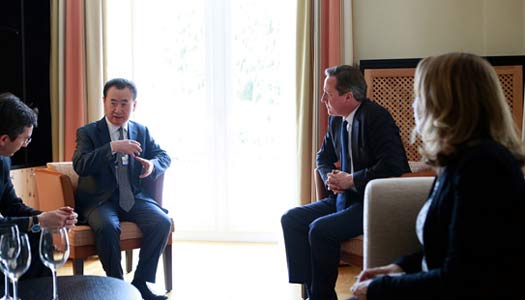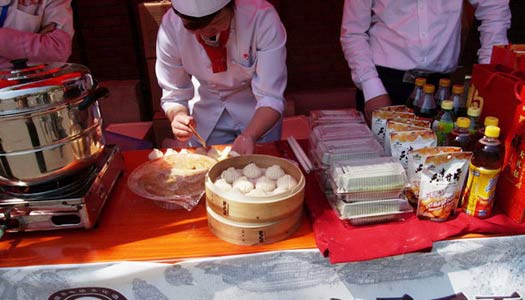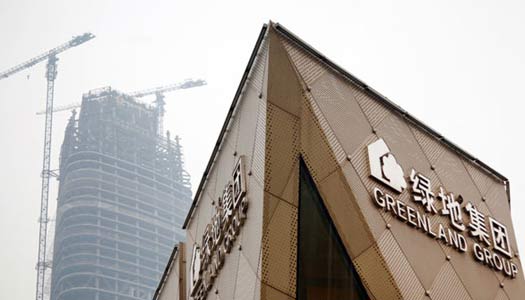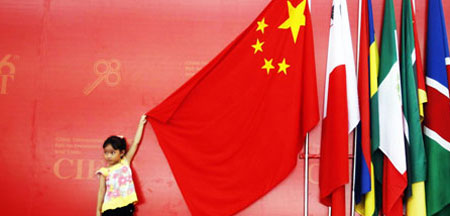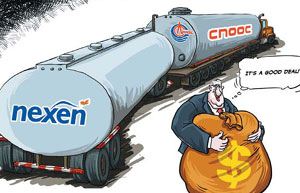
Chinese firms' growing ODI offers opportunities
Updated: 2012-07-10 02:55Win-win benefits
Gerald Lyons, Standard Chartered Bank's chief economist, said that "we are going from made-in-China to bought-by-China".
In addition to China Investment Corporation, China's sovereign wealth fund, the State Administration of Foreign Exchange has also been active overseas through its investment arm, Safe Capital, which owns at least $300 billion in overseas assets.
And the State-owned Assets Supervision and Administration Commission has been given around $10 billion to support Chinese outbound investment.
But the motivation of Chinese companies and investment institutions has been frequently misunderstood and challenged by some foreign governments and institutions, who claim that Chinese companies are grabbing assets around the world.
"Many people are willing to claim that Chinese companies are investing for some political purpose or with evil intentions, but they are wrong," said Chen.
"They always have their own business considerations. They do it either to expand their market and obtain know-how or to obtain resources China needs. And what is more important is that many Chinese investment deals are warmly welcomed by foreign countries amid the debt crisis."
Huang agreed. "Our projects abroad create numerous jobs, injecting capital and vigor into local economies," he said.
Kingking's operations in Vietnam are a good example of this.
Early in 2006, the company was granted approval to establish a wholly owned subsidiary and factory in Vietnam to make high-end candles, with an initial investment of $2.8 million.
In 2009, Kingking invested a further $15.8 million to expand the plant's capacity.
"Our factory in Vietnam employs more than 1,000 local people. It exported candles worth $26 million and generated tax revenue of around 8 million yuan ($1.26 million) in 2011," Huang said. "It's not a small contribution."
Kingking is not alone. Especially due to the financial crisis and debt problems in Europe, many companies in developed economies are on the brink of bankruptcy and struggling for capital. As a result, Chinese investments are a boon to them and inject dynamism into the local economy.
In November 2008, COSCO Pacific, China's State-owned container operator, agreed to invest 620 million euros ($740 million) to upgrade an existing terminal at Piraeus port in Greece, and build a new facility to handle larger ships capable of carrying 10,000 TEUs (20-foot equivalent units), in a bid to boost trade with emerging markets around the Black Sea rim.
Due to limited handling facilities and poor labor relations, Piraeus Port Authority, the state-controlled operator, had struggled to attract international container companies.
But Wei Jiafu, chairman of COSCO Group, said "we are in Greece for the long term".
COSCO will operate both terminals under a 35-year concession agreement with the Greek government, tripling its annual capacity to more than 3 million TEUs and creating up to 1,000 jobs.
In the months after the deal was signed, there were many strikes initiated by the port's trade union, and the local workers expressed their misgivings about COSCO's investment, Wei said.
The COSCO chairman said he went to the port many times to tell the workers that the company's investment was in their interests. He said the pledge he made to them to create more jobs and employ a high proportion of local workers brought an end to the strikes.
While the company has around 200 employees in Greece, only seven managers are Chinese.
Tang from Jones Day said "a lot of cases speak well about the positive impact that Chinese companies exert on local economies".
As the nation's ODI surges and spreads to more regions worldwide, establishing a sound reputation in foreign countries and having good communication with local people have become pressing tasks for Chinese companies. The Chinese government has also recognized the importance of this.
In May, cultural guidelines were released by six ministries and bureaus, including the Ministry of Commerce. The guidelines cover how Chinese companies doing business overseas should deal with differences in languages, customs, values and religious beliefs, and emphasized the importance of job creation and corporate social responsibility.
"Chinese outbound companies need to strengthen their soft power" to get assimilated into foreign markets and make themselves acceptable to local people, said Zhang Guoqing, deputy director of the ministry's department of policy research.
- BYD exports three electric cars to Thailand
- Grid gets first jolt of residential solar power
- US now largest buyer of China's exports
- China's outbound M&As on the rise
- Tobacco control may entail price, tax rises
- Quanzhou becomes pilot financial reform zone
- New automobiles shine at Geneva Motor Show
- World's longest high-speed rail 'on track'
- Jiugui Liquor involved in plasticizer scandal again
- Accident reignites school bus safety concerns
- China to revise labor law
- Trademark registration under scrutiny
- Dinner ban takes toll on liquor firms
- CIC tables bid for London's Chiswick Park
- Property buyers eye overseas market
- Call for law to protect personal information
- China to cut train ticket prices
- Christmas business
- Solar industry to get jolt from new policies
- KFC chicken under spotlight



